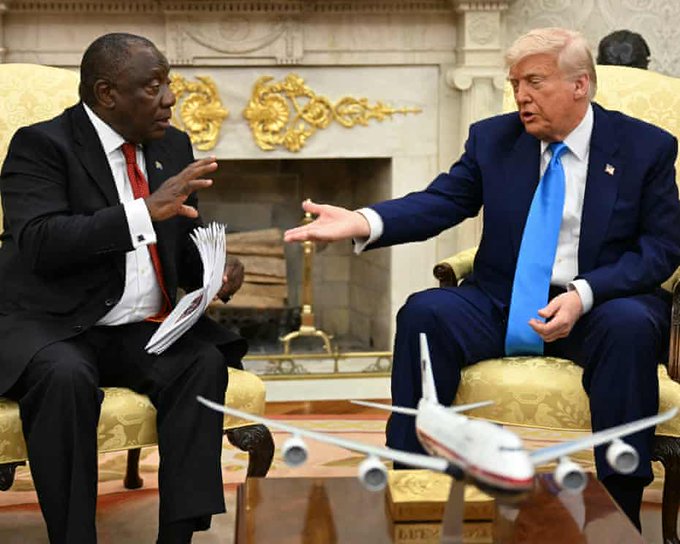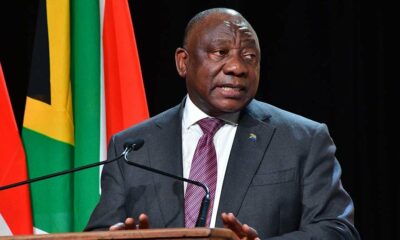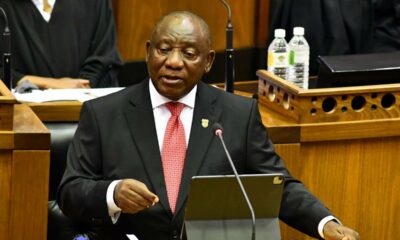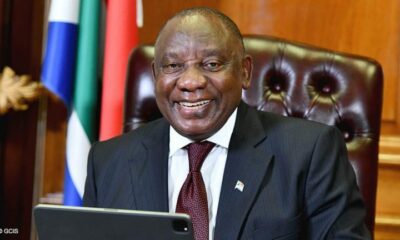News
US Bill Targets South Africa Over BRICS Ties and Gaza Stance

Congress Pushes for Sanctions, Reigniting Diplomatic Tensions with Pretoria
South Africa is once again at the centre of international controversy, this time facing the real prospect of U.S. sanctions. A powerful congressional committee in Washington has given the green light to the U.S.-South Africa Bilateral Relations Review Act, a bill that could fundamentally reshape how the United States engages with Pretoria.
Approved by the House Foreign Affairs Committee with a 34–16 vote, the legislation now heads to the broader House of Representatives. If passed, it would require a sweeping review of diplomatic, military and economic ties with South Africa and open the door to sanctions against certain ANC leaders and government officials.
A Growing Rift Over Foreign Policy
At the heart of the fallout is a widening rift over South Africa’s foreign policy choices. U.S. lawmakers are increasingly uneasy with Pretoria’s vocal support for Palestine, its BRICS alignment with Russia and China, and its perceived closeness to Iran. One of the most inflammatory flashpoints: South Africa’s decision to take Israel to the International Court of Justice over alleged genocide in Gaza, a move that sharply diverged from U.S. policy.
It doesn’t help that former U.S. President Donald Trump has reignited rhetoric around “white genocide” in South Africa, further stoking diplomatic tensions. Meanwhile, South Africa is scrambling to fend off a looming 30% tariff on its exports to the U.S., a move that would hit the local economy hard.
Congressman’s Criticism Adds Fuel to the Fire
The bill’s sponsor, Republican Congressman Ronny Jackson of Texas, did not mince words. Posting on X (formerly Twitter) in April, he wrote:
“South Africa made its choice when they abandoned America and our allies and sided with communists and terrorists.”
Jackson and other conservative lawmakers accuse South Africa of undermining U.S. global interests, especially by maintaining strong BRICS ties with Russia and China and allegedly supporting Hamas, a claim South Africa has vehemently rejected.
Potential Fallout: From Trade to Health Partnerships
Critics of the bill, including some policy analysts and African diplomats, warn that if passed, it could unravel decades of cooperation on key areas like health, regional security, and development. The U.S. has historically been a major funder of HIV/AIDS and tuberculosis programs in South Africa. Others argue that the legislation oversteps, penalizing a sovereign nation for exercising an independent foreign policy.
But supporters insist it’s time for Washington to take a harder line. “If South Africa wants the benefits of partnership with the United States, it cannot behave like an adversary,” said one analyst close to the committee.
South African Public Response: Mixed, But Watching Closely
South African social media is abuzz with reactions ranging from nationalist pride to concern about economic fallout. On X, the hashtag #HandsOffSouthAfrica trended alongside fierce debates about sovereignty, Western hypocrisy, and the role of global power in African politics.
Many South Africans point out that their country’s pro-Palestine stance reflects popular opinion, not just ANC policy. “We’re not puppets. We don’t dance for the West,” one user posted. But others fear this escalating standoff could cost South Africa billions in lost trade and investment.
What Comes Next?
If the bill passes the full House and Senate, the U.S. State Department will be required to conduct a deep dive into all aspects of the U.S.–South Africa relationship. The results could lead to reduced aid, strained military ties, or even visa bans on certain ANC figures.
More than just a diplomatic squabble, the bill signals a pivotal moment: Can South Africa maintain its independent global posture without sacrificing critical Western alliances? Or is it headed toward economic and diplomatic isolation from its once-close U.S. partner?
Either way, a new chapter in U.S.–South Africa relations is being written and the world is watching.
AfriForum Backs US Sanctions Bill, but Who Really Pays the Price?
{Source: MSN}
Follow Joburg ETC on Facebook, Twitter , TikTok and Instagram
For more News in Johannesburg, visit joburgetc.com



























